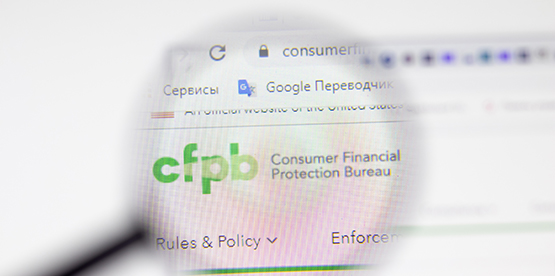What Happened?
On May 31, 2024, the Consumer Financial Protection Bureau (CFPB) sued student loan servicer Pennsylvania Higher Education Assistance Agency (PHEAA) for illegally collecting on student loans that have been discharged in bankruptcy and sending false information about consumers to credit reporting companies, in violation of the Consumer Financial Protection Act (CFPA) and the Fair Credit Reporting Act. As a result of PHEAA’s alleged practices, borrowers are forced to either pay debt they do not owe or risk being hit with negative information on their credit reports and default due to the purported non-payment. The CFPB’s lawsuit asks the court to order PHEAA to stop its illegal conduct, provide redress to borrowers it has harmed, and pay a civil penalty.
Notably, this lawsuit follows a prior complaint and proposed stipulated judgments filed by the CFPB against PHEAA and National Collegiate Student Loan Trusts (the Trusts) just 25 days earlier. The stipulated judgments filed by the CFPB on May 6, 2024, if approved (briefing to continue until at least June 28, 2024), would require the PHEAA and the Trusts to pay more than $5 million for student loan servicing failures, including failing to provide accurate information to borrowers and incorrectly denying forbearance requests. In addition to certain affirmative obligations, the Trusts are prohibited from directly or indirectly violating sections 1031 (prohibiting unfair, deceptive, abusive acts and practices) and 1036 (prohibiting violating a federal consumer financial law) of the CFPA with respect to certain borrower requests.
Why Is It Important?
The proposed stipulated judgments conspicuously lack one important feature – they do not provide for a termination date. While certain administrative provisions contain time limits (such as 5-year notification and recordkeeping requirements), the stipulated judgments effectively act as a permanent injunction against PHEAA and the Trusts. In other words, if, at any point in the future, PHEAA were to violate the Consumer Financial Protection Act, then PHEAA would be liable for violating the stipulated judgment – and, subsequently, at risk of being branded a “repeat offender” by the CFPB. Conveniently, just last week, the CFPB finalized a rule to establish a registry to detect and deter corporate offenders that have broken consumer laws and are subject to federal, state, or local government or court orders.
What Do I Need to Do?
Institutions within the CFPB’s jurisdiction should be aware of the CFPB’s actions and present any applicable legal defenses as to why an indefinite contract may be deemed unenforceable in court. Further, institutions should enhance their compliance management systems to mitigate risk and ensure they do not end up on the CFPB’s repeat offender list.

